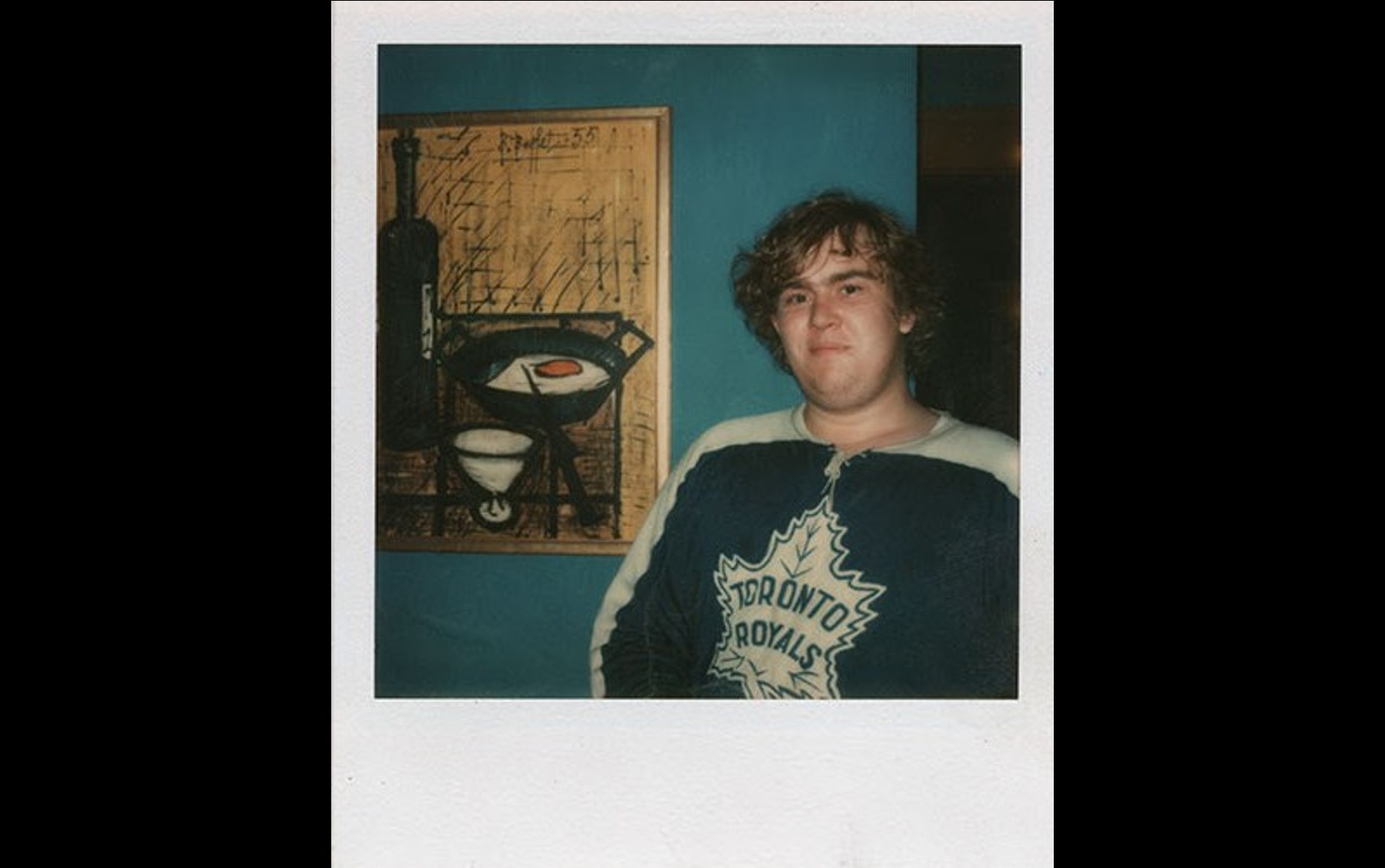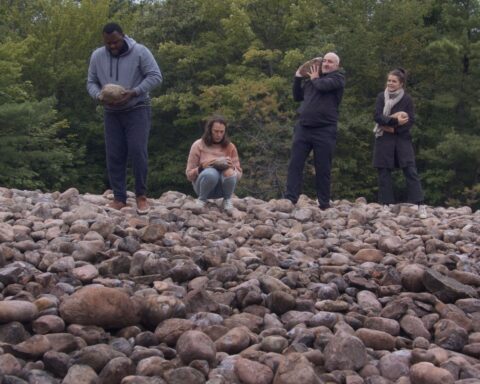John Candy: I Like Me
(USA, 113 min.)
Dir. Colin Hanks
Programme: Galas (World premiere – opening night)
The closest thing to dirt that anyone shares about John Candy in this documentary is that he once milked a scene in a stage play so shamelessly that it gave director Sydney Pollack a fit. Bill Murray relates this story to producer Ryan Reynolds in John Candy: I Like Me. It’s a funny and fitting effort to bring the biography of the late Canadian comic into warts-and-all territory. Murray conveys the story with palpable, almost uncharacteristic sentimentality. It’s a telling anecdote about how much Candy’s co-stars loved him and how greatly he brought out the best in everyone. (Save perhaps for Pollack.) Biographical documentaries and celebrity profiles often find themselves lacking in the absence of salacious material, but absence makes the heart grow fonder in this case. The John Candy story is all heart.
John Candy: I Like Me breaks the TIFF curse for opening night movies. It’s a perfect choice to have kicked-off the 50th edition of the Toronto International Film Festival with its nostalgic celebration of a Canadian icon lost too soon. It’s film whose heart and humour are fuelled by the joy of sharing a laugh with fellow moviegoers in a theatre. That’s the kind of spirit that typifies Candy’s best work as an actor.
Directed by Colin Hanks, the film charts a straightforward tale of Candy’s humble upbringing in Toronto and his rise through the comedy scene, leading up to his death in 1994 at age 43. The film frequently circles back to Candy’s young age, as interviewees, including his kids Christopher and Jennifer, convey how the death of Candy’s own father foreshadowed his fate. As interviewees note, Candy’s father died of a heart attack at age 35. He passed suddenly on John’s fifth birthday, so the notions of mortality and of the preciousness of time are recurring themes in the anecdotes that interviewees share. This facet of Candy’s biography lends an awareness of time, too, as Candy knew the impact of growing up without a father, yet his commitment to showbusiness and making the best of life even though his ticker would inevitably run out quickly meant a disciplined commitment to balancing work and family.
I Like Me makes a fine companion to fellow comedy doc You Had to Be There, which also screens at this year’s festival, as its early act uses the 1972 Toronto production of the musical Godspell to convey a cultural renaissance. Everyone but Candy was in Godspell, but I Like Me shows how the musical wasn’t the full ground zero for Canada’s comedic explosion. Second City gets a thoroughly welcome appraisal here as former co-stars like Eugene Levy, Catherine O’Hara, and Dave Thomas remember Candy’s mastery of improvisation.
Archival clips from SCTV give audiences of all ages a taste of Candy’s comedic greatness. Each one draws a huge laugh regardless of whether one sees them anew or revisits them for the umpteenth time. Ditto the iconic characters from movies like Spaceballs, Splash, and Planes, Trains and Automobiles. The film lets Candy’s screen presence shine, giving full credit to an actor whose void has yet to be filled.
The real nuggets from the archives, however, aren’t the famous clips from Candy’s heyday. They’re the moments between the takes in which Candy riffs with his fellow actors. Take one behind-the-scenes moment between Candy and O’Hara on the set of Home Alone. Candy keeps the “yes, and?” dynamic of his improvisational style warm between takes. He tells O’Hara, without breaking character, that his jacket holds the pungent musk of dead rats after visiting a dilapidated room whose previous tenant expired in the walls. O’Hara can barely contain her laughter, volleying back before covering her mouth. It’s funnier than any moment from the comedy classic.
Interviewees, including Tom Hanks, Martin Short, Steve Martin, and Mel Brooks, share insights about Candy’s adeptness as a comedic actor, but also a dramatic one. Hanks relates how Candy brought out the best in him while sharing the screen in Splash. The emphasis in Hanks’ story is on “sharing” the screen, as every moment (save perhaps for that Pollack play), saw Candy use his improvisational chops to get his scene partner on the same wavelength. The interviews sometimes prove repetitive and redundant, but the continuity underscores the point nobody has a bad word to say.
Martin, meanwhile, remembers how Candy’s heart of gold could lend dramatic gravitas to screwball comedies. When I Like Me revisits the scene from Planes, Trains and Automobiles that gives the film its title, Candy’s performance during a reaction shot in which Martin’s character berates his boorish salesman, the internal devastation of his loveable character will bring a viewer to tears. It’s as if Candy’s own heart breaks in this moment before he fires up to defend the character with his memorable rejoinder: “I like me. My wife likes me.” The charm of his humour is that it never punched down. The film plays this scene from 40 years so remarkably well that it seemingly encapsulates everything great that Candy embodied as a man and performer.
The latter point lends additional gravitas to the story when the film considers the personal struggles that Candy faced. His weight proves a talking point as some jaw-dropper clips from archival interviews between Candy and journalists illustrate how the media constantly forced his weight as a topic of conversation. Some questions cross the line in ways that would never fly today, but Candy smoothly replies with honesty and candour.
But these sad clips illustrate how Candy knew he was living on borrowed time, a point the film stresses by frequently marking time stamps with 1994 and then rolling back the clock to the point in the story. The film invites notable conversations about mental health as interviewees get frank about Candy’s anxiety and his refusal to change his habits, like drinking and smoking, while making some headway in terms of a healthy lifestyle give considerable give and take.
There’s a bittersweet irony to the fact that Candy’s heart failed him, since the stories presented in I Like Me make clear that heart never failed anyone. This film offers a wonderful tribute: you’ll laugh, you’ll cry, you’ll love it.














